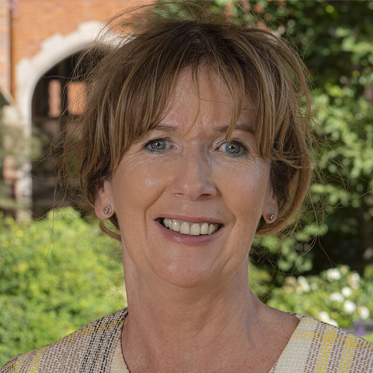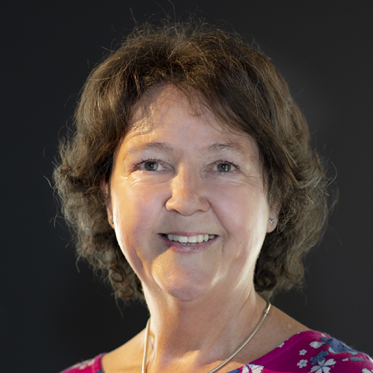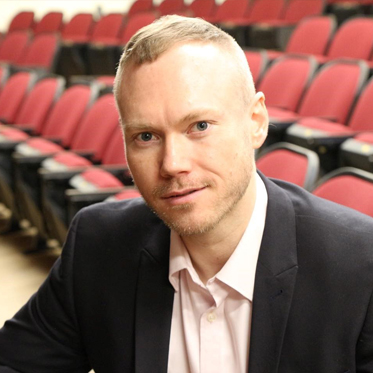Knowing what we know about sexual vulnerability, being mindful of past trauma, the need to prevent harm and abuse, to celebrate difference and desire, we can also give equal voice and place to sex and intimacy in the lives of women and men living with dementia and its contribution towards well-being. (Lipinska 2017) (1)Lipinska D. Dementia, Sex and Wellbeing: A Person-Centred Guide for People with Dementia, Their Partners, Caregivers and Professionals: Jessica Kingsley Publishers; 2017.
This resource is currently being evaluated and may be updated in future in line with feedback from users.
Sexuality and relationships are important at all stages of life; their expression can be joyful, positive and life affirming (2)Dickinson T, Litvin,R., Horne,M., Brown Wilson, C., Simpson,P. and Hinchliff,S. Sexuality and Relationships in Later life In: Ross FM, Harris R, Fitzpatrick JM, Abley C, editors. Redfern's nursing older people 5th ed. Glasgow: Elsevier Health Sciences; 2023. p. 397-413.. Our sexuality is part of our identity, its acknowledgement is a core part of holistic care and is equally important to people living with dementia (3)Lipinska D, Heath H. Sexually speaking: person-centred conversations with people living with dementia. Nursing older people. 2023;35.
Dementia itself presents different challenges in maintaining intimate and sexual relationships and this resource will explore how those who work with people living with dementia can support the person in maintaining these important relationships. This resource is intended to be used alongside local policy guidance. It provides different ways of thinking about this important area of practice.
In this video Professor Christine Brown Wilson, Professor of Education and Internationalisation at Queen’s University Belfast introduces the resource and challenges us in our thinking.
Meet the Team

Christine Brown Wilson
Queen’s University Belfast
Christine is Professor of Nursing (Education) and Director of Internationalisation at School of Nursing and Midwifery at Queen’s University Belfast. She has an international reputation in dementia and care homes research using participatory methods such as co-design. Christine has co-designed digital games and e-resources to promote the learning of health care professions and students. More information.

Anita Mallon
Queen’s University Belfast
Dr. Anita Mallon is a Research Fellow at Queen’s University Belfast. She has a background in Intensive Care Nursing and nurse education. Research interests include palliative care, social care, resilience and dementia care.

Gary Mitchell
Queen’s University Belfast
Gary is a Reader in the school of Nursing and Midwifery at Queen’s University Belfast. He is a registered nurse with significant clinical and academic experience in care home nursing, frailty, dementia, delirium & palliative care. Gary holds the title of Queen’s Nurse (QN) and was named as Nurse of the Year by the British Journal of Nursing in 2016 for his work in dementia palliative care within care homes.

Frances Duffy
Northern Health and Social Care Trust
6D-Dementia Ltd
Dr Frances Duffy is a Consultant Clinical Psychologist working in dementia care for over 15 years, and an NHS Clinical Entrepreneur. Her clinical work focuses on older people’s mental health, including dementia diagnosis, post-diagnostic support, and specialist rehabilitation for delirium. Working in the Northern Health and Social Care Trust, she developed CLEAR Dementia Care and the CLEAR Dementia Care App. Frances is also Founder and CEO of 6D-Dementia Ltd. She developed the 6D online training platform to reduce caregiver burnout and improve quality of care in community and hospital settings. She has published best practice papers in dementia commissioned by the Public Health Agency and the British Psychological Society, including guidelines on managing behaviours that challenge (James, Duffy et al., 2024). She was a member of the Northern Ireland Dementia Improvement Collaborative who produced the Regional Dementia Care Pathway and is a committee member of the British Psychological Society Faculty of the Psychology of Older People.

Allison Batchelor
Dementia NI
Allison has been married to Tom, her childhood sweetheart, for 42 years. they have 2 children and 2 grandchildren. Allison worked as a sign language interpreter and loved helping people feel more included in society. Allison believes that she had early signs of dementia about 5 years before her diagnosis in 2017. Allison joined Dementia NI shortly after her diagnosis and the Peer Support and Work she does with Dementia NI gave her back her hope and showed her, she could live well with Dementia.

Orla Mathews
Northern Health and Social Care Trust
Orla is the Dementia Service Improvement Lead Nurse for Hospital Settings in the Northern Health and Social Care Trust. Orla is a registered nurse with a background in acute adult nursing.

Ross Mawhinney
Belfast Health and Social Care Trust
Ross Mawhinney RNA TCH SCPHN is a Specialist Nurse, who is leading on service improvement within Adult, Community and Older People’s Services at Belfast Health and Social Care Trust. His focus is on quality improvement and practice development methodologies to implement and embed initiatives and innovations in dementia practice.

Debbie Rainey
Belfast Trust
Debbie is the Dementia Service Improvement Lead for Acute Setting at the Belfast Trust, with a specialist interest in Acute Older People Medicine and Dementia Care.

Tommy Dickinson
King's College London
Tommy is a Professor of Nursing Education and Associate Dean (International Education) at King's College London. He is a dual-qualified (adult & mental health) registered nurse. Following a clinical career predominantly in gerontological and social nursing in the UK and Australia, he moved into an academic role in 2006. He held lectureships at several universities before commencing at King’s in 2016. In 2018, he was awarded the prestigious Talbott Visiting Professor of Nursing at the University of Virginia in the USA. Tommy is an Honorary Professor of Nursing at Queen's University Belfast and the first and only UK-based nurse selected for a Fellowship in the USA’s Academy of Nursing Education. He is also a Fellow of the American Academy of Nursing and the European Academy of Nursing Science.

Laura Brown
University of Manchester
Dr. Laura J. E. Brown is a Senior Lecturer in Psychology at the University of Manchester. Her research focusses on supporting older people to live and age well, particularly those who live in long-term settings. She is also Treasurer and Secretary of the British Society of Gerontology’s Care Homes Research Special Interest Group.

Elizabeth Henderson
Queen’s University Belfast
Elizabeth is a registered nurse with a specialist practice qualification and Masters in advanced professional practice, both in the care of older people. Prior to her role in academia, she occupied the role of ward manager of an Acute Care of Older People ward within the Southern Health and Social Care Trust.

Gillian Carter
Queen’s University Belfast
Dr. Gillian Carter is a senior lecturer in chronic illness, she trained in adult nursing and has been working in healthcare research for over 15 years. Her research focuses on enhancing the provision of support for family carers of individuals living with a neurodegenerative disease, in particular dementia or Parkinson's Disease.

Róisin Santin
Southern Health and Social Care Trust
Róisin joined the Southern Health and Social Care Trust as a Sexual Health Improvement Specialist in 2018. Róisin has a BSc in Applied Psychology and a MEd in Special Educational Needs, and has held public health roles in both the voluntary and statutory sector in Northern Ireland. Róisin has been involved in the development and implementation of sexual health initiatives which directly address sexual health inequalities; she is committed to working in partnership with service users and healthcare professionals to improve service delivery, tackle inequalities and optimise health.

Gabrielle O'Neill
South Eastern Health and Social Care Trust
Gabrielle has a background in Adult Nursing. Since 2012, Gabrielle has been the Sexual Health & Disability health Improvement Specialist in the South Eastern Health and Social Care Trust. She has been involved in a number of innovative sexual health improvement projects and has been instrumental in the development of progressive strategic policies for Northern Ireland. Gabrielle led on the development of the inaugural RSE adults with Dementia protocol since its inception and subsequent publication in 2020.
Acknowledgements
Sincere thanks to Noma Tholo for her valuable contribution relating to cultural aspects of care giving and as care recipients.
To Bilha Reji, many thanks for providing practice examples.
Sincere thanks to the Dementia Service Improvement Leads from the five health and social care trusts in Northern Ireland; Tracy Kane & Fiona Rooney (SeTrust), Marc Harvey & Orla Mathews (NHSCT), Naoimh McGlone & Shane Fearon (SHSCT), Ross Mawhinney & Debbie Rainey (BHSCT) and Nicola Hayes & Majella Magee (WHSCT), and to the staff from across health and social care who took part in our co-design workshops.
Our thanks to Dementia NI for their valuable contribution and to the Patient and Carer Education Partnership member Brian Fitzsimons for giving us his insight into supporting someone with dementia.
Thanks also to Stephanie Burton PhD student for her help in facilitating the co-design workshops.
A very special word of thanks to Deirdre Lewis for championing this work from the outset.
Thank you to Steph Kerr Service Manager Mental Capacity Act and Approved social Work Services for her expertise in making the mental capacity act accessible to a wide audience.
Thank you to Health and Social Care Northern Ireland for funding this resource.
Thanks to the team at Morrow Communications for their expert work and guidance in developing this resource.
Thanks also to Melvin and his team at Focus Games for creating such fabulous animations.
Thank you to the amazing voices that brought the animations to life.
This resource has been developed by Queens University Belfast School of Nursing and Midwifery in partnership with:
About this Resource
Sexuality is recognised as a fundamental human right, just as human rights exist in other aspects of life (4)Barrett C, Hinchliff S. Addressing the sexual rights of older people: Routledge London; 2017.. Unfortunately, people with dementia are often denied this right. In some cases, this is due to a lack of knowledge, misconceptions, and stereotypes.
A common stereotype of an ‘asexual old age’ is being challenged in recent literature (5)Hinchliff S, Gott M. Ageing and sexuality in western societies: Changing perspectives on sexual activity, sexual expression and the ‘sexy’older body. Ageing and Sexualities: Routledge; 2017. p. 11-31. with research demonstrating that many people remain sexually active well into old age and also while living with dementia (6)Lindau ST, Dale W, Feldmeth G, Gavrilova N, Langa KM, Makelarski JA, Wroblewski K. Sexuality and cognitive status: a US Nationally representative study of Home‐Dwelling Older adults. Journal of the American Geriatrics Society. 2018 Oct;66(10):1902-10.. In the absence of a cure, caring for the person living with dementia focuses on maximising quality of life such as maintaining family bonds, friendships, relationships, intimacies, and sexuality (7)Claes F, Enzlin P. Dementia and sexuality: A story of continued renegotiation. The Gerontologist. 2023;63(2):308-17.. The reality is that sexuality is often seen as a concern or a medical problem to be controlled (8)Wilson CB. Caring for people with dementia: a shared approach. london: sage; 2017.. In our co-design workshops, participants felt this needed to be challenged and the starting point was the importance of looking at the whole person.
INTERESTING FINDINGS
A study with a nationally representative sample of home dwelling older adults in the USA found that, of partnered people living with dementia 59% of men and 51% of women were sexually active, including 41% of those aged 80 to 91 (6)Lindau ST, Dale W, Feldmeth G, Gavrilova N, Langa KM, Makelarski JA, Wroblewski K. Sexuality and cognitive status: a US Nationally representative study of Home‐Dwelling Older adults. Journal of the American Geriatrics Society. 2018 Oct;66(10):1902-10..
The onset of progressive cognitive decline does not indicate an end to sexual or intimacy needs. However, the changes brought about by dementia can lead to social, emotional and behavioural challenges including ethical, consensual and safeguarding issues. These issues need to be addressed if people with dementia and their partners are to be enabled to experience safe and emotionally fulfilled relationships.
This e-resource is designed to be used alongside local policy guidance. We have drawn on and the resource is informed by the Northern Ireland Operational Guidance ‘Relationships, Sexuality and Dementia’ which was developed in response to a recognised need by staff within dementia care to affirm the right of people living with dementia to practice and enjoy personal and sexual relationships. It is presently being updated. The importance of this subject to people living with dementia and those who care for them is highlighted in the range of training resources and fact sheets with regional, international and global guidance booklets developed by government bodies, charities and professional organisations. This resource is designed to promote reflection and understanding, and to provide information that guides your practice in recognising the importance of intimacy, sexuality and relationships to people living with dementia.
Orla Mathews, Dementia Improvement Lead, highlights the importance of recognising sexuality as an integral part of being human and asks us to examine how this is currently prioritised in our care of the person with dementia.
Using this resource
This resource has been designed with the principles of Universal Design for Learning. This means we use a variety of mediums to suit different ways of learning. In each section you will find information in easy-to-read text, key facts and information presented in infographic style, animations, videos and podcasts. Please help us make this resource responsive to what you need by completing the evaluation form. Following completion of the evaluation form you can download a certificate of achievement for your records to say you have completed this e-learning.
This resource can be used by individuals and groups and is based on the following key principles:
Sexuality and the right to engage in sexual and intimate relationships is a human right, extended to all people irrespective of a diagnosis; (equal rights, social inclusion and citizenship)
Sexuality and relationships are an important aspect of a person's life, and what matters to the person needs to be considered in relation to the delivery of dementia care and services (decision making capacity, consent choice, risk)
Sexuality and intimacy is a sensitive subject and people may have negative experiences of this in relation to service and care delivery (permission, privacy dignity)
Respecting diversity and promoting inclusion in relation to gender, sexual orientation, ethnicity, religion, culture and age
Information is current, and evidence based with appropriate sign posting to further resources.
Overview of each unit of learning
Unit 1: Understanding sexuality, intimacy and relationships in dementia
UNIT 1: Understanding sexuality, intimacy and relationships in dementia — Promoting person centered practice through knowledge building. This unit aims to build awareness of the importance of sexuality, intimacy and relationships to the person living with dementia. In this unit you will explore the meaning of terms and the different types of dementia. You will hear testimony from practitioners on how dementia impacts the person's ability to meet their needs and aspirations independently, relating to intimacy, sexuality and dementia.
Unit 2: Creating an inclusive environment for people living with dementia to continue sexual and intimate relationships
UNIT 2: Creating an inclusive environment for people living with dementia to continue sexual and intimate relationships — This unit uses person centered frameworks to highlight the importance of seeing the person in context of culture, sexuality and relationship to inform, nurture and build person centered support.
Unit 3: Supporting sexuality, intimacy and relationships in dementia
UNIT 3: Supporting sexuality, intimacy and relationships in dementia — In this unit we detail the experiences of carers both formal and informal, highlighting the joys, challenges, and potential renegotiation of relationships that may take place as the dementia illness progresses. This unit emphasises the essential role of assessing mental capacity and understanding the legislation that guides and informs practice.
This e-resource contains information, advice and guidance to help health and social care staff. The information on this website has been developed with professionals, academics and people living with dementia. Whilst every effort has been made to ensure the information is accurate and up to date, the website has been co-designed and reflects experiences shared with the co-design group. The resource has been developed with significant input from practitioners in the health and social care sector. However, the views and opinions expressed do not necessarily reflect those of the funding body or the wider health service.



